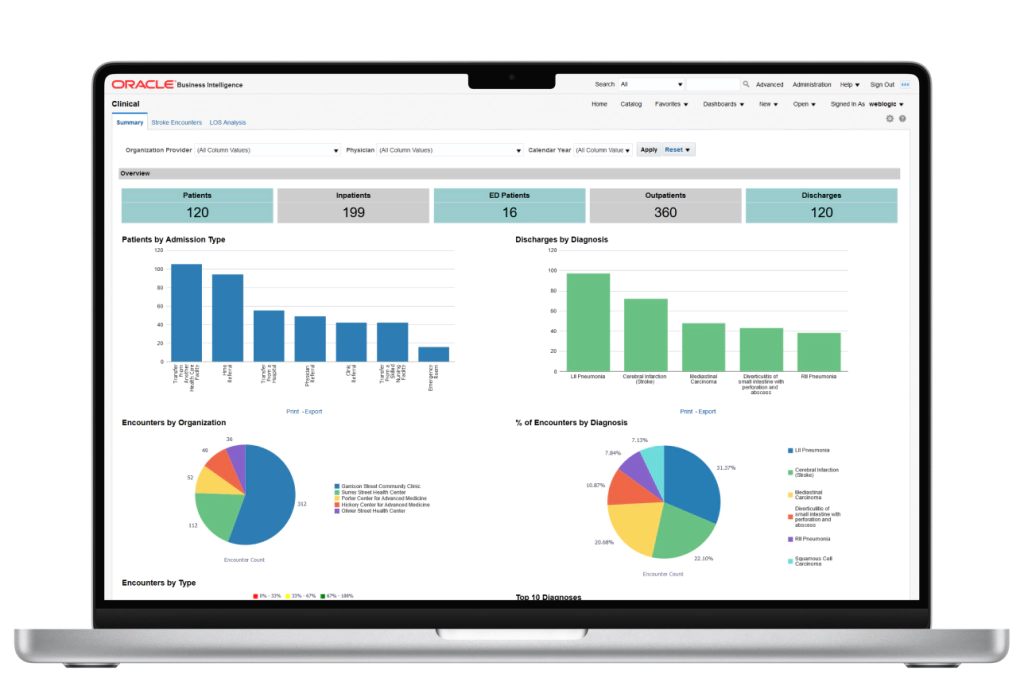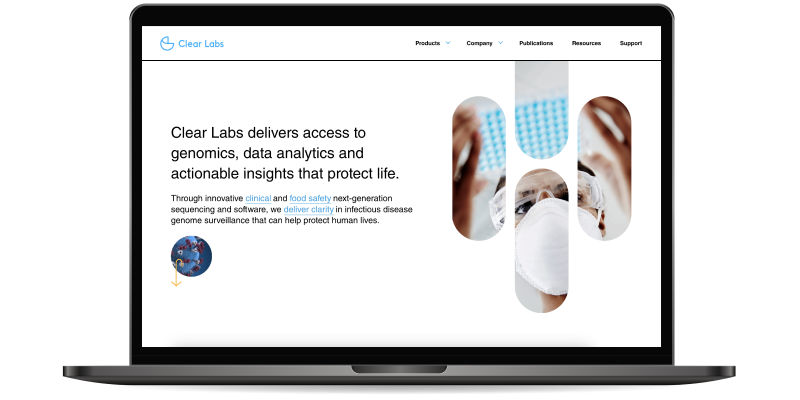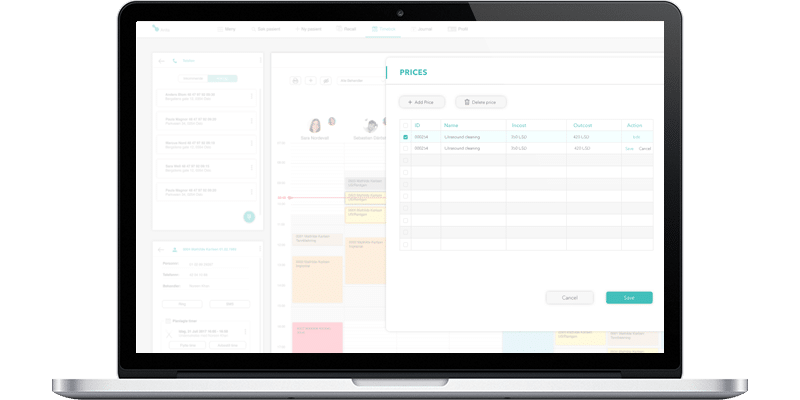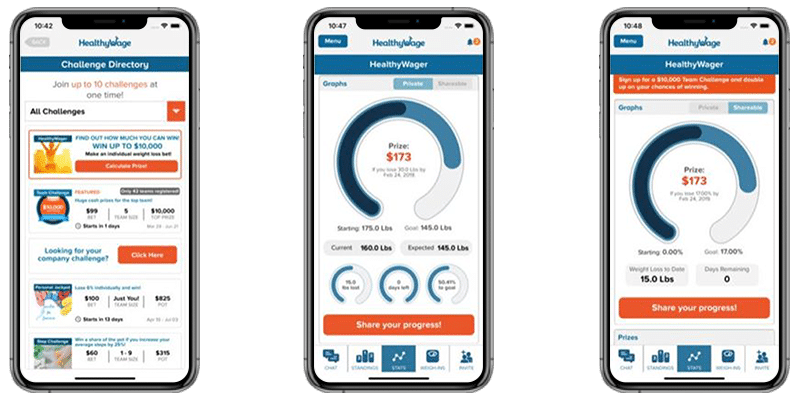What we offer
Data integration
Kept in one virtual venue, aggregated data in compatible formats is the vital value of a health care data warehouse (DWH). To guarantee this asset, we ingest all kinds of medical data (unstructured, semi-structured, and structured), their transformation (summarization, conversion, etc.), load and retrieval, high-end data management, and information querying via SQL.
Data storage
When all the data is collected and integrated, it should be securely stored. We use the healthcare data warehouse schema to obtain protected health information and metadata storage for historical and current subject-oriented medical data. We also offer you a choice of data storage environments (on-premises, cloud, or hybrid).
DWH development
DICEUS specialists, as seasoned healthcare data warehouse vendors, create professional DWH solutions and focus on two essential components. The first is the back-end side, which embraces high-quality software, efficient infrastructure, and security protocols. The second is the front end with an easy-to-operate dashboard and a gamut of data management and analytics tools.
DWH modernization
The healthcare data warehouse model we deliver is never carved in stone. As new technologies and approaches to data storage and management push in and novel medical discoveries are made, we update the DWH to provide the best patient service and meet doctors’ needs halfway. Special attention is paid to automating as many workflow operations as possible.
Security and compliance
Personal and clinical information security is paramount in medical data warehousing. To address this requirement, we introduce granular column- and row-level security monitoring, multi-factor authentication, healthcare data encryption, vulnerability detection, and threat assessment. We also control compliance with HIPAA, FDA, HITECH, and other healthcare regulations.
Self-service BI development
Even the most complete and transparent collection of medical data is of little use unless clinicians can draw some insights from it. The DWHs we develop enable clear visualization of the data hoarded there, allow for the creation of user-friendly dashboards to work with patients’ demographics, and provide automated reporting opportunities to keep a hospital’s records in apple-pie order.
Get professional consultating on your project!
Benefits of a data warehouse in healthcare
Healthcare providers are often trendsetters among organizations across various industries that employ an enterprise data warehouse. DICEUS supports its state-of-the-art data storage and management aspirations by delivering top-notch DWH solutions that can significantly enhance patient services.
Now, most healthcare organizations switch to digital information storage as part of electronic health records (EHR). We can take your medical treatment services to a new level by uniting all your siloed on-premises data systems into a cloud-based clinical data warehouse with enormous business intelligence (BI) opportunities and advanced analytics. Our approach to data warehousing in healthcare allows for fast solution delivery according to your specific needs.
Essential qualities to consider in the healthcare DWH
Ample data storage
One of the key features of a DWH is its ability to serve as a centralized data repository for healthcare organizations. Clinical data warehouse architecture should be based on the enterprise data model, where the relationships between different types of records are clearly defined. Utilizing an independent data mart model with the records classified according to the department they belong to makes it easier to find and analyze the necessary data stored within the DWH.
Seamless data integration
Data gathered in the DWH is derived from numerous external and internal sources, such as public databases, electronic health records (EHR), electronic medical records (EMR), lab databases, pharmacy management systems, enterprise resource planning (ERP) solutions, insurance claims management systems, and others. The more channels for extracting data are involved, the more complete a vision of patients and workflows the DWH’s owner has.
Data transformation and cleansing
To make the information liable for advanced analytics, healthcare data warehouses should ensure adequate data quality. Achieving it presupposes various cleaning and decluttering procedures (removing errors, eliminating duplicates, getting rid of inconsistencies, checking data accuracy, etc.) aimed at guaranteeing that the centralized repository stores only complete, understandable, compatible, up-to-date, and relevant data that is properly indexed and categorized.
Data querying and reporting
Assembling huge volumes of patient, medical, and administrative data in one place makes sense only if you can retrieve, analyze, and present data analysis results in an easy-to-comprehend format. A top-notch DWH is equipped with diverse mechanisms, such as BI tools, SQL and query builders, online analytical processing (OLAP), data mining tools, decision support software, a reporting module, and more, to streamline and facilitate research and statistical analysis.
Data security and compliance
Since healthcare data warehouses store highly sensitive data, clinics and hospitals should guarantee its protection both at rest and in transit from the data source to the data storage level. By implementing stringent role-based access control, intrusion detection systems, firewalls, encryption, and regular security audits, a DWH will not only safeguard the inviolability of its content but also ensure compliance with numerous legal standards relevant to the industry.
Performance and reliability
These are among the top data warehouse challenges since the software should operate efficiently and be failure-free. When information kept in the healthcare DWH is quick to identify and retrieve, easy to comprehend on user-friendly dashboards, and provided with an automated backup, medical institutions can radically enhance patient outcomes, boost clinical research, improve clinical trials, and offer exceptional-quality patient care.
Our healthcare DWH development process
Building a data warehouse for any use case is a serious endeavor that can be tackled only by high-profile software experts. Our vetted mavens have top-notch skills and sufficient experience in data warehouse design for hospitals across the globe, which has allowed us to develop a comprehensive and efficient strategy for accomplishing such projects. It includes the following steps.
Let’s discuss your requirements!
Beneficial integrations for a DWH in healthcare
Developers should leverage reliable and secure APIs to implement important healthcare data warehouse integrations, ensuring maximum operational efficiency, improving clinical outcomes, and ensuring ultimate patient satisfaction.
- Data lakes. Before all relevant data is moved to a healthcare data warehouse, it is hoarded in data lakes. Typically, these long-term storage facilities contain unstructured (audio/video files, medical images, real-time IoT metrics, etc.) and structured (EHRs, claim-related data) information that the DWH can query on demand.
- Machine learning. Versatile information data lakes store can be used not only for further integration and processing by DWH tools. It can become input data for training machine learning algorithms. By integrating disruptive ML-driven mechanisms, healthcare data warehouse owners can increase the solution’s predictive powers, enable the delivery of personalized medical services, and boost proactive planning.
- BI software. Business intelligence tools are second-to-none descriptive analytics instruments. Their integration with healthcare data warehouses provides valuable insights that pave the way for operational and strategic decision-making. The efficiency of such tools grows manifold if they present analysis outcomes as easy-to-comprehend visuals on interactive dashboards and in immersive reports.
Who gains from developing a healthcare DWH?
Making a healthcare data warehouse an integral element of the professional IT ecosystem would benefit many stakeholders across various verticals.
What impacts your project duration
How long will it take to create a DWH for your healthcare organization? We can give you a more or less accurate estimation after we know the following information:
- Project requirements
- Expected deadlines
- Team composition
- Selected platforms and tech stack
- The complexity of building the DWH
What affects your project costs
The sum you will have to allocate to obtain a fully functional healthcare data warehouse depends on five factors:
- Chosen technology
- Project scope and complexity
- The urgency of project completion
- Engagement model
- The cloud platform for your DWH
What we need from your side
Our team is qualified enough to complete any data warehouse project within the stipulated budget and timeframe. Yet, you can speed up and promote this process if you cooperate closely with the project crew. It will be a win-win outcome for both of us if you provide the following:
- The project vision, goals, and roadmap (if it exists)
- High-level project requirements
- Available project-related documentation (software architecture, mockups, etc.)
- Project deadlines
- Your accessibility schedule (several hours a week)
Why choose DICEUS for healthcare DWH development?
Healthcare data warehouse development is a sophisticated process that can be entrusted only to qualified and certified outsourcers. What makes DICEUS your number one choice for an IT company to accomplish such projects?
- Profound niche expertise. During our 14+ years of presence in the IT outsourcing market, we have placed a special emphasis on healthcare solutions. Numerous successful projects in this field and collaboration with high-profile medical organizations enriched our software engineers with an in-depth understanding of the industry workflows and peculiar challenges to address.
- Highly competent experts on the roster. Our international workforce includes over 250 skilled professionals well-versed in all aspects of software development. We can quickly assemble a qualified project team that will provide full-cycle SDLC of the best-in-class healthcare data warehouse on time and on budget.
- Compliant products. The healthcare domain operates under stringent legal standards concerning data security. Being aware of it, we prioritize regulatory compliance in building healthcare solutions, making sure they adhere to HIPAA, HITECH, PIPEDA, FDA, and other norms relevant to the industry across different countries.
- Flexible cooperation. We practice a client-centered approach, aspiring to meet our customers halfway through all aspects of the partnership. The project team adapts to your interaction style and communication schedule, offers NDA, and stays open to any customer suggestions and feedback that can improve the final product.
Our tech stack
Testimonials
Explore our case studies
Frequently asked questions
What is a data warehouse in EHR?
As a backbone of the electronic health record system, a data warehouse accumulates information from medical dossiers, lab tests, medication prescriptions, and even insurance claims. Within a DWH, the data are unified, structured, visualized, and prepared for further analysis, which can be implemented with the help of special tools the data warehouse is equipped with.
How does a clinical data warehouse work?
First, data from internal and external sources is gathered, aggregated, and transformed through an ETL (extract, transform, load) or ELT (extract, load, transform) process. Then, it is placed into centralized storage (conventionally a cloud-based one), where BI, reporting, and visualization tools can access, retrieve, and analyze it.
What is the difference between a data warehouse and a clinical repository?
Both act as data storage facilities. However, a clinical repository only collects and hoards raw data. A healthcare data warehouse (DWH) is a more advanced form of an information depot. DWH stores data, can draw it from multiple sources, and transforms and structures it. Moreover, its high-end tools enable in-depth data analytics.












